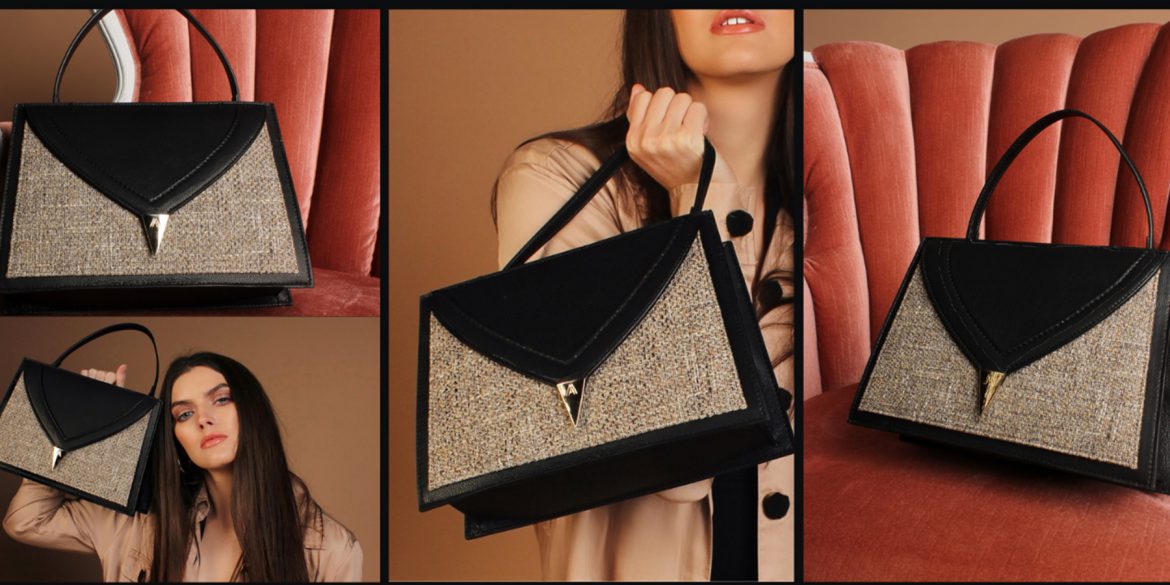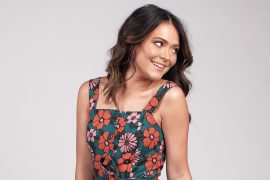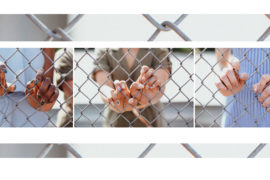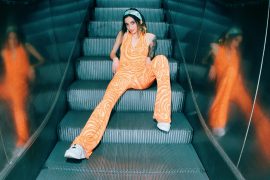PATTERN sat down with Tara Eggenspiller, the owner of Angela Mariah handbags, to discuss her business, the inspiration behind her designs, and the passion and dedication it takes to enter the fashion industry.
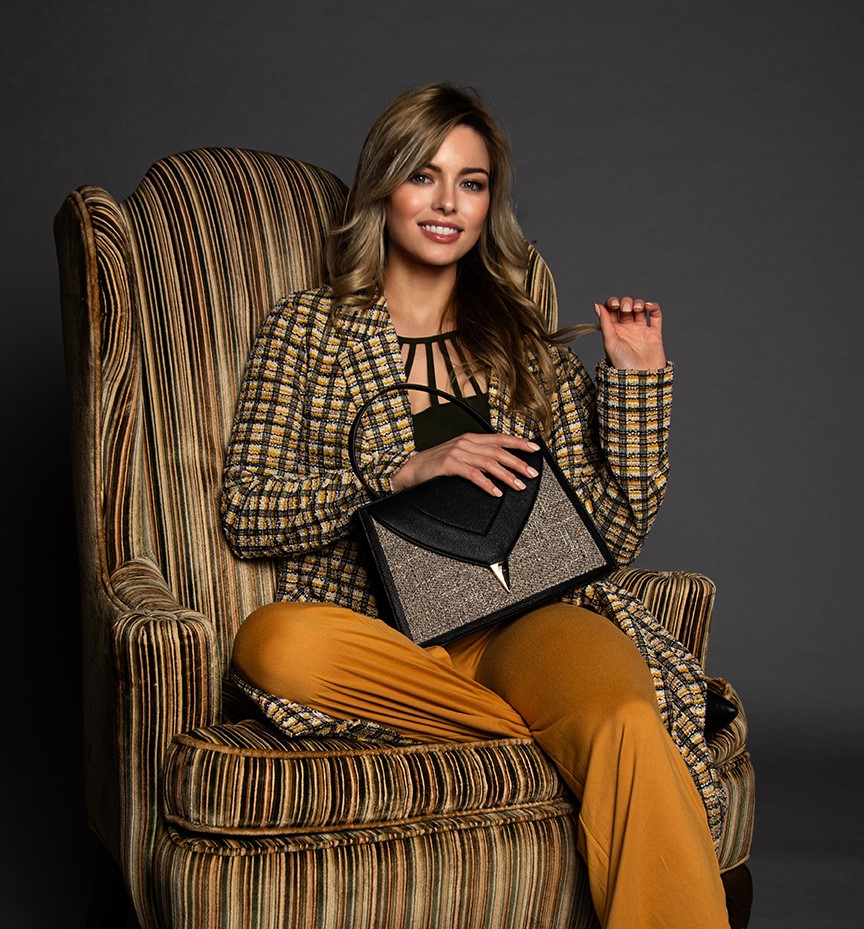
Mackie Schroeter: Tell me a little about yourself
Tara Eggenspiller: Hi! I’m Tara, and I started Angela Mariah in 2018 as a creative thing to do after my day job. I was in the public accounting world and had a really boring job which caused me to think about all the other things I could be doing in that time. I just knew what I was doing was the wrong thing for me, and I felt so unfulfilled. One day on my break I was taking a walk and asked myself what I would be doing if I felt like I was truly achieving my purpose. I wanted to be in a cool studio working on projects and feeling like I could just really create. I do not know exactly where the connection was made to try and sew a purse, or to try and do anything in the fashion industry because I really did not have a strong previous interest. Regardless, I went to a fabric store in Chicago and talked to the guy who owned it, and I ended up buying all this vinyl and tweed, and I said I am just going to go home and try to make a purse. At that time, I was just doing it as a creative outlet, but one thing led to another and I wanted to keep pursing making purses.
The idea for a brand came from a mistake on this black clutch I was making. I accidentally cut a piece of material on a really sharp angel, and it ended up looking like a bird’s beak, keep in mind, it was like 1 AM and I had been working all day. I thought it looked like a raven’s head, so I added eyes and a clasp as the beak, and my goal was for it to look really edgy and chic! The idea then developed further to make a whole line of bird inspired bags that symbolize focus, edginess, and freedom that I thought a woman who was really in her purpose would feel. It was a very undeveloped concept at the time, and I knew I was taking a big risk starting a company using this idea at the expense of any other idea. The biggest thing early on was contending with having so many ideas and picking one because I thought that I needed to be super committed to that one and come to some level of mastery of it. I kept asking myself how would I do in an industry that is so competitive and oversaturated? To be honest, I wasn’t happy that the idea I landed on, the thing I was passionate about, was fashion, but I just kept working on it every single day, and I eventually started to see it come to life.
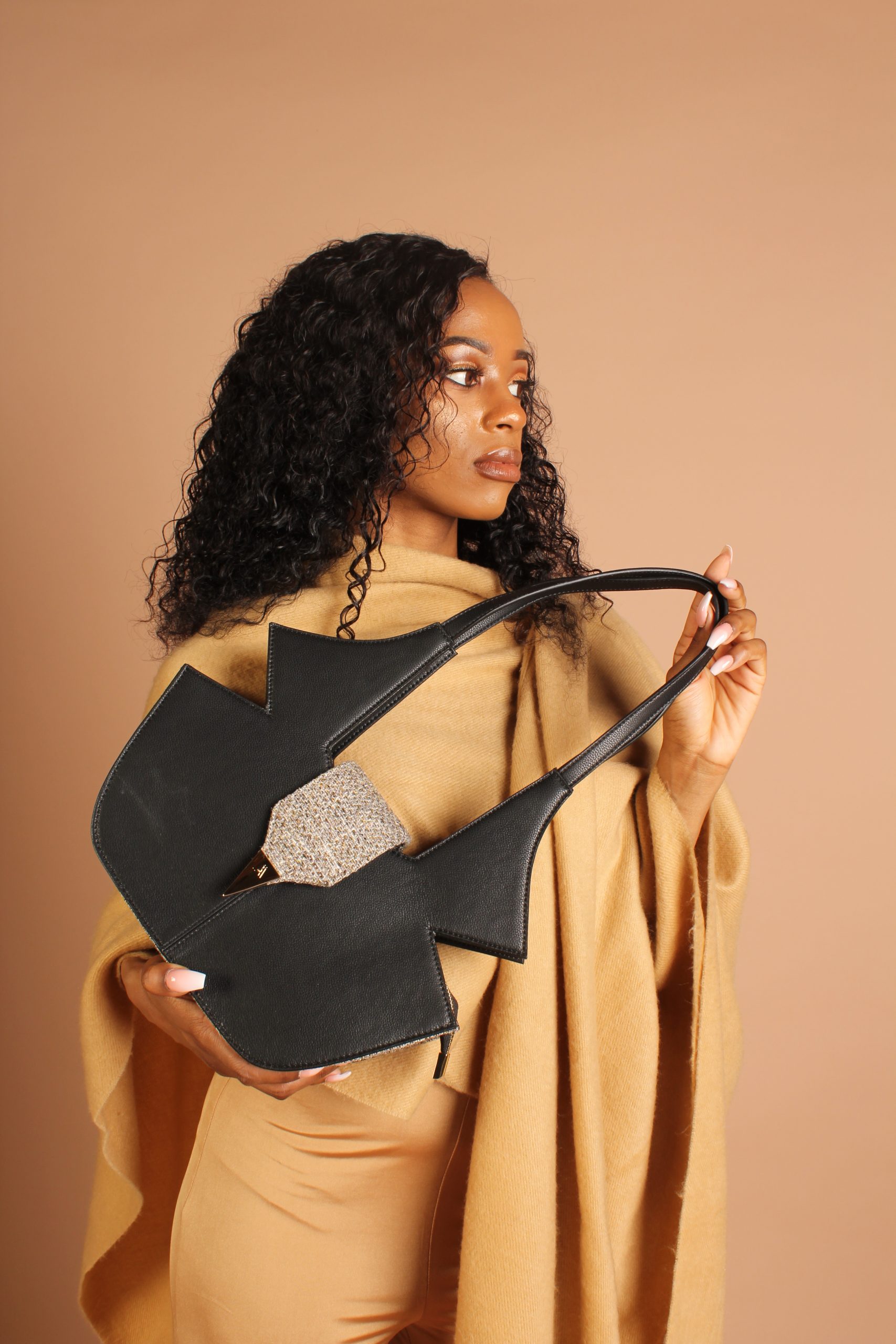
MS: What was your process of getting Angela Mariah off the ground?
TE: It took me a solid year from visiting the fabric store to getting an approved sample made. It took a lot of research because like I said I didn’t have much fashion knowledge, so every little question had to be researched. Someone who had gone through fashion school would have been way more familiar with what a pattern was, how to find a cut and sew factory, and just how the process works in general. I ended up quitting my job as a CPA and joined this online support group for people who are starting a fashion business. That group helped me understand how to find a manufacturer and get samples made, but that was a tough process. I learned that my sketches did not always give me the results I wanted from the manufacturer, so it took multiple attempts, and it is still a process today. My first collection was a huge risk because I didn’t even get to see the production ready samples before I ordered them. So here I was with about 120 bags, and I didn’t have a clue of how I was going to sell them. I didn’t have any marketing experience, and my branding was very elementary. There were aspects of the bags I didn’t like, and that made it much harder to sell something I didn’t fully believe in. I knew what I wanted to convey but this wasn’t it. I had all the inventory, though, so I had to figure out a way to sell it. From there, it was learning all the business aspects, like building a website that looks professional. In the end, it took me a year to sell all those bags while at the same time figuring out photography, booking models, and branding.
MS: How are you making your designs sustainable?
TE: That original group of bags I mentioned before was not the vision I saw for my next collection. I wanted to focus more on a vintage feel with tweed fabrics and that bird beak inspiration. I came up with five new designs but only put one into production called the 1201 bag. Putting focus on a more sustainable model, I only do small runs of around 300 bags, I use timeless and classic shapes, some designs include a convertible handle that can make the bag a top handle, cross body, or shoulder bag, I use tweed instead of animal leather, and I give 10% of sales back to Dress for Success, an organization I feel is close to my mission. Those are just a few ways I try and practice sustainability, and I hope in the future to use more vegan options like pineapple or mushroom leather when they become more readily available to smaller designers.
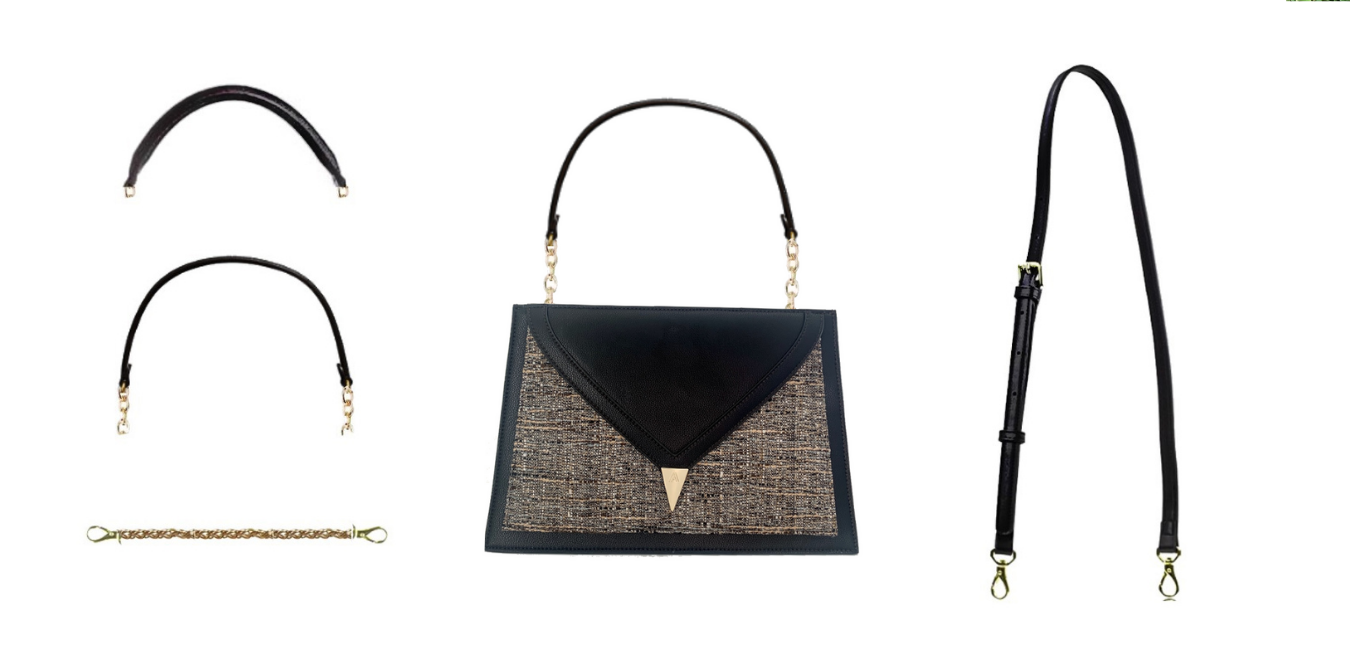
MC: What is the best and the hardest part of owning your own business?
TE: The best thing is knowing I do not have to settle, and everything is what I make of it. Getting to see the fruits of my labor and the fruition of my dream is worth it more than the money from a sale. It is amazing to see that an idea I created in my brain is of value to someone else. The hardest parts are comparing myself to other brands and the constant rejection. I remember a brand I saw when I was first launching who had started a year before me, and I kept thinking how did they get there? I thought they were so much farther than me, but I had to remind myself that everyone has a different path. Access to investors and education is also important. I heard a lot of “not yet” when I first started, and that was really hard. I would send out fishing emails to 40 people and not hear back. I had to stop planning too far ahead as far as where I want to be 12 months from now because there is so much dependent on other people saying “yes”. A good goal I have found is saying I am going to reach out to 25 people. That puts the goal in my hands instead of doing something like getting 5 people to say yes because that means the goal will only be fulfilled if they agree.
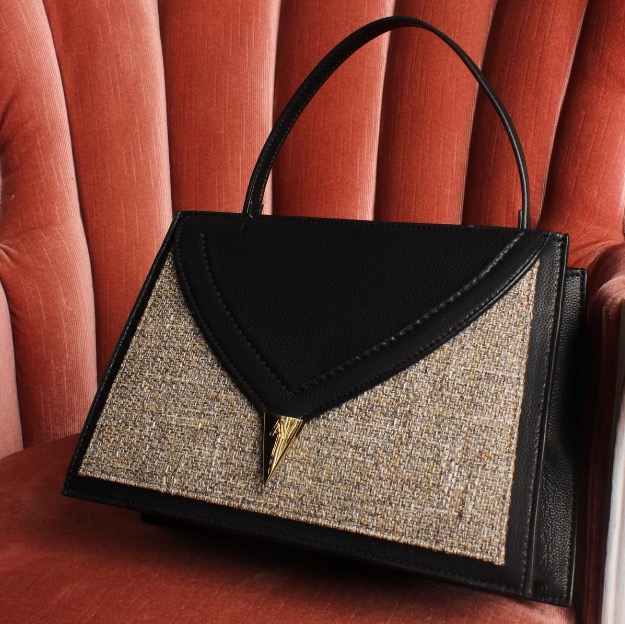
MS: Do you have any advice for someone who wants to start their own handbag business?
TE: Honestly, I feel like 50% to 60% of people are more creative than me or have an advantage of starting a fashion related business that I didn’t have as an accountant and as someone who is far more left-brained. Having a real vision for the brand and understanding marketing is really important, and that wasn’t something I had right off the bat. Taking the time to develop that overall big picture is key because without a brand you are a commodity, end of story.
Follow on Instagram here

